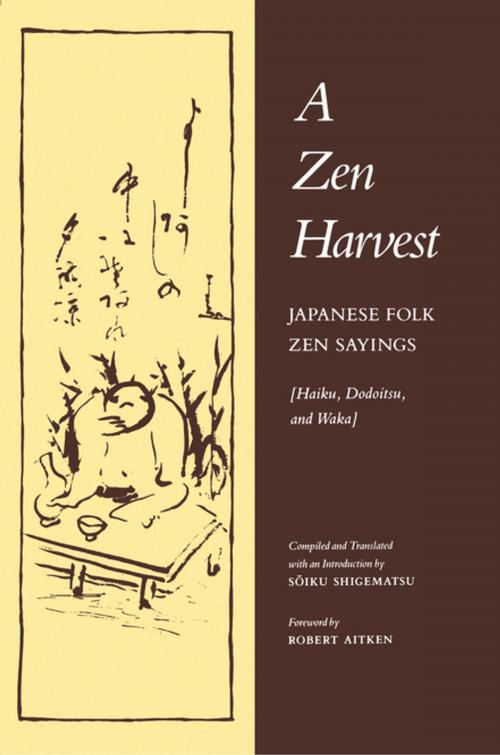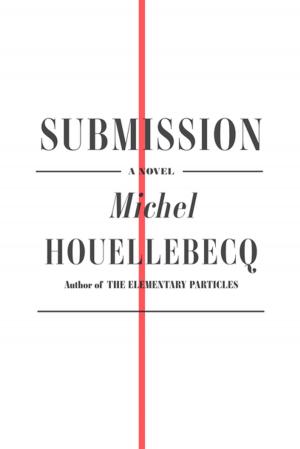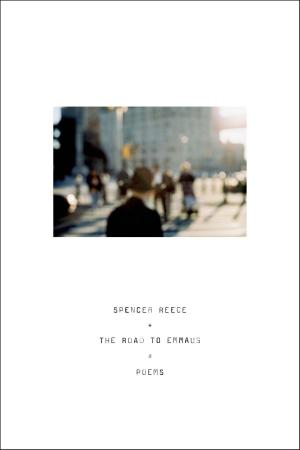A Zen Harvest
Japanese Folk Zen Sayings (Haiku, Dodoitsu, and Waka)
Nonfiction, Religion & Spirituality, Eastern Religions, Zen Buddhism, Fiction & Literature, Poetry| Author: | ISBN: | 9781466895416 | |
| Publisher: | Farrar, Straus and Giroux | Publication: | December 29, 2015 |
| Imprint: | North Point Press | Language: | English |
| Author: | |
| ISBN: | 9781466895416 |
| Publisher: | Farrar, Straus and Giroux |
| Publication: | December 29, 2015 |
| Imprint: | North Point Press |
| Language: | English |
One of the vital aspects of traditional Rinzai Zen koan study in Japan is jakugo, or capping-phrase exercises. When Zen students have attained sufficient mastery of meditation or concentration, they are given a koan (such as the familiar “What is the sound of one hand clapping?”) to study. When the student provides a satisfactory response to the koan, he advances to the jakugo exercise–he must select a “capping phrase,” usually a passage from a poem among the thousands in a special anthology, the only book allowed in the monastery.
One such anthology, written entirely in Chinese, was translated by noted Zen priest and scholar Soiku Shigematsu as A Zen Forest: Sayings of the Masters. Equally important is a Japanese collection, the Zenrin Segosh**u, which Mr. Shigematsu now translates from the Japanese, including nearly eight hundred poems in sparkling English versions that retain the Zen implications of the verse.
One of the vital aspects of traditional Rinzai Zen koan study in Japan is jakugo, or capping-phrase exercises. When Zen students have attained sufficient mastery of meditation or concentration, they are given a koan (such as the familiar “What is the sound of one hand clapping?”) to study. When the student provides a satisfactory response to the koan, he advances to the jakugo exercise–he must select a “capping phrase,” usually a passage from a poem among the thousands in a special anthology, the only book allowed in the monastery.
One such anthology, written entirely in Chinese, was translated by noted Zen priest and scholar Soiku Shigematsu as A Zen Forest: Sayings of the Masters. Equally important is a Japanese collection, the Zenrin Segosh**u, which Mr. Shigematsu now translates from the Japanese, including nearly eight hundred poems in sparkling English versions that retain the Zen implications of the verse.















